Wondering which foods to focus on when you’re pregnant, or which nutrients you should be getting more of? Here’s a breakdown with everything you need to know!

If you’re expecting, especially for the first time, you’re likely wondering which foods and nutrients you should be focusing on (and perhaps which foods you should be avoiding) during pregnancy. You’re certainly not alone! There’s SO much information (a lot of it MISinformation) out there on nutrition for pregnancy, that it can feel overwhelming and confusing. Don’t worry – I’ve got you!
In this comprehensive guide, we will cover foods and nutrients for a healthy pregnancy:
When you’re expecting, it’s important to eat a variety of nutritious foods every day and listen to your body’s hunger and fullness cues. Your appetite might be different when you’re pregnant—and for good reason—so it’s important to pay special attention.
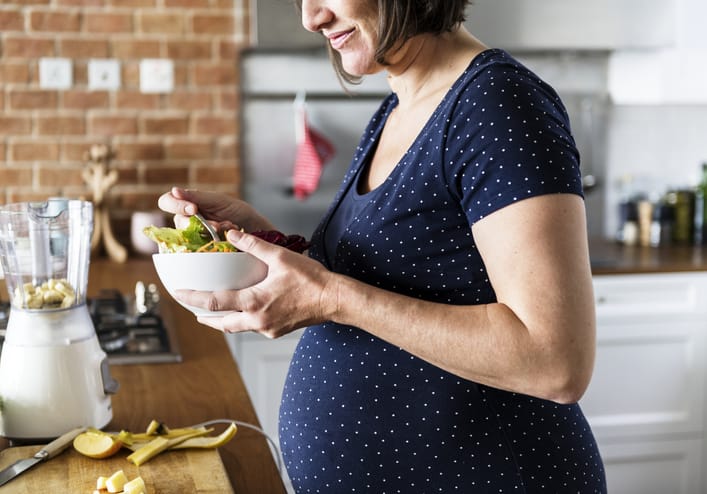
During the first trimester, however, there’s really no need to consume any additional calories, which is something many people are misinformed about. During this early stage, you can eat the same amount as you usually do. What about the whole “eating for two” thing?! Well, you do need to eat a bit more as your pregnancy progresses, but certainly not double! Assuming you’re starting out at a healthy weight, you should be eating roughly an extra 350 calories a day during the second trimester, and about 450 extra calories in your third. Should you be counting calories though? No way – it’s not necessary. This is just a ballpark.
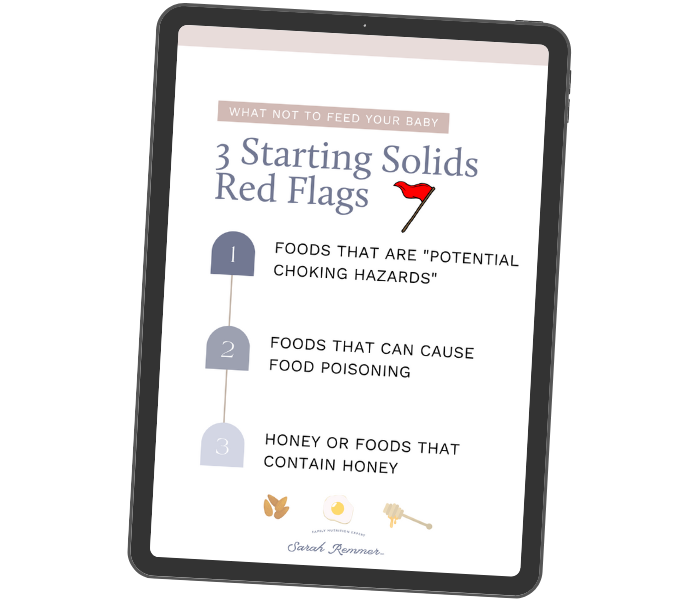
Starting solids? Don’t panic.
Starting solids is an exciting milestone in your baby’s life, but it can also be confusing, especially when you’re overloaded with conflicting information on how and when to do it. Download your free guide to starting solids and clear the confusion!
Take a daily prenatal multivitamin and mineral supplement
Aside from eating nutritiously, it’s important to take a good prenatal multivitamin daily. I recommend starting before you begin trying to conceive (because you often don’t know you’re pregnant until several weeks after conception!), but don’t worry if you haven’t yet—just start now. No need for fancy or expensive supplements here. Just make sure that it contains 0.4 milligrams (400 micrograms) of folic acid, 15 to 27 milligrams of iron, and a minimum of 400 IU of vitamin D. It should also have less than 5,000 IU of vitamin A, which can be harmful at higher doses. Find out more about what to look for in a prenatal multivitamin here.

Which foods (and nutrients) should I be focusing on while pregnant?
I want to make one thing clear right from the get-go: There aren’t really any magical pregnancy foods that you absolutely must eat more of, but there are certainly some nutritious foods that you can focus on throughout pregnancy.
Here are the nutrients (and foods that contain them) to pay attention to while pregnant. I’ll explain why they are good choices and offer alternatives in case you are having an aversion to something on the list.
Protein-rich foods for pregnancy:
Examples: meat, poultry, fish, eggs, dairy, beans, lentils, nuts, seeds, soy
How much protein do you need? About 71 grams per day or ¼ of your plate at meals.
Protein helps build and maintain structural components of your body (and your baby’s body!), such as muscle, skin, and hair. Protein also helps to support a healthy placenta, which is the important structure that supplies your baby’s nutrition during pregnancy and prevents harmful substances from passing to your baby’s bloodstream.
Many protein-rich foods also supply other important nutrients for pregnancy. For example, fish is a fantastic source of vitamin B12, omega-3 fat, and in some cases—like salmon, trout, and snapper—even vitamin D.
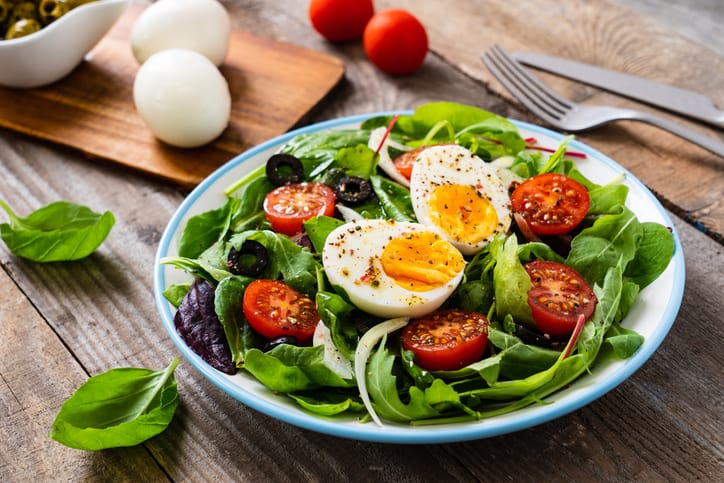
Omega-3- rich foods for pregnancy:
Examples: Oily low-mercury fish such as salmon, skipjack tuna, trout, sardines as well as omega-3 eggs, walnuts, flaxseeds, hemp hearts, chia seeds, canola oil, camelina oil, and soybean oil.
How much do you need? Between 300-500 milligrams DHA + EPA per day (DHA and EPA are the best sources of Omega-3 – see below).
Omega-3 fatty acids are essential for good health in both babies and adults, so it’s really important to get enough during pregnancy. These health-promoting fatty acids travel through the placenta to your baby to help grow their brain and tissues in the womb. Official recommendations have not been established yet, but we do know that an omega-3 fat called DHA is very important for proper brain, eye, and nerve development in your growing baby. So experts suggest at least 300 milligrams of DHA and EPA combined per day.
When it comes to omega-3, oily fish is the gold standard—it’s by far the best way to ensure that you’re getting enough. I recommend you consume 2-3 servings (3 ounces per serving) of fatty, low-mercury fish (like salmon or trout) per week. If you’re not a fish fan, you can take a daily omega-3 fish oil supplement during pregnancy (with 300 to 500 milligrams of DHA).
What about flax seeds and nuts?
Plant-based omega-3 fat does not contain DHA and EPA, which are the special fatty acids that are best for baby’s brain, eye, and nerve development. Walnuts, flax, hemp, and chia seeds contain ALA instead, which can be converted by the body to DHA and EPA, but in very small amounts. So as a rule of thumb, if you’re not getting at least two sources of low-mercury oily fish per week, it’s best to take a supplement. If you are vegetarian or vegan, look for DHA and EPA supplements made from algal oil, which comes from algae (a plant from the sea, like seaweed).
Cool fact: fish are high in DHA and EPA because they eat algae! So you can skip the fish and go right to their source.
Why low mercury fish?
It’s important to avoid eating a lot of high-mercury fish such as shark, albacore tuna, swordfish, king mackerel, and tilefish during pregnancy. Fish oil supplements contain little to no mercury, but fish liver oil supplements (such as cod liver oil) contain high (potentially toxic) levels of vitamin A and D and are NOT recommended for pregnant or breastfeeding women.
Interesting finding: A review of 70 studies showed that consuming 500 mg DHA per day (from food or supplements) showed a lower incidence of pre-term births, less risk of having a low birthweight baby or needing neonatal intensive care admission. So, aim for that 300-500 mg/day range of DHA from food or supplements.
How much fish oil supplement is too much?
It’s important to make sure you don’t overdo it if you’re taking a supplement. Make sure your daily dose of fish oil supplement contains no more than 3 grams (3,000 milligrams) of DHA and EPA per day. This amount has been studied and is safe for pregnant women. Fish liver oil supplements are not recommended during pregnancy as mentioned above.
If you’re one of the unlucky people who experience “fish burps” after taking an omega-3 fish oil supplement (yuck!), try choosing pharmaceutical-grade fish oil that’s enterically coated. That means the pills have a coating around them so they don’t dissolve in the stomach. Instead, they stay intact until they reach the intestines, and you can’t burp them back up from way down there. Phew.
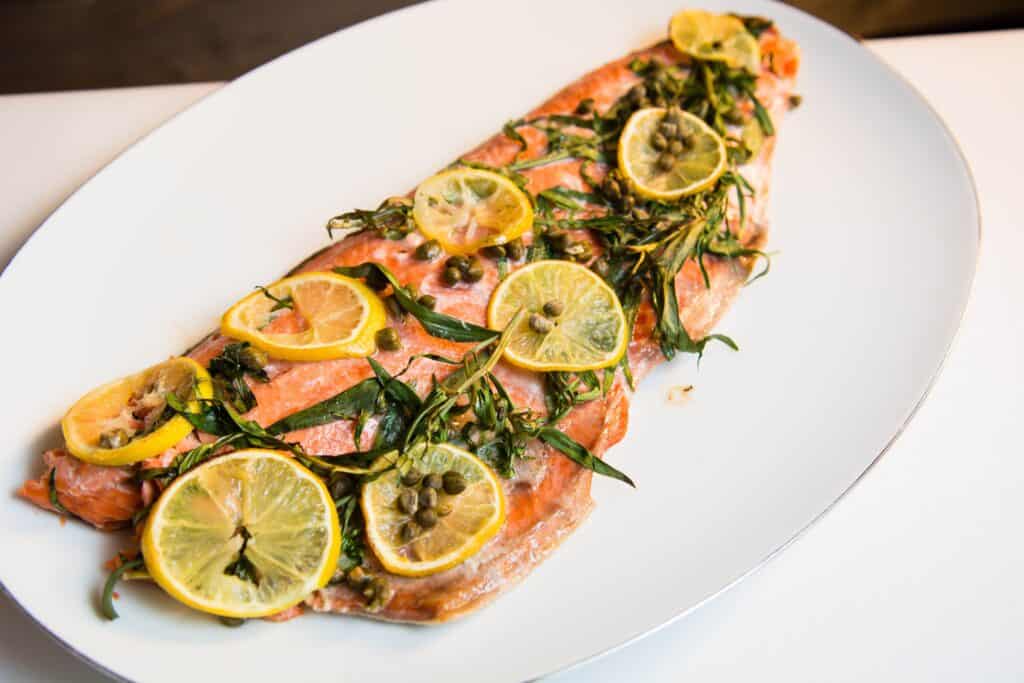
Iron-rich foods for pregnancy:
What iron-rich foods are ideal for pregnancy?
Examples: Red meat, poultry, seafood, beans, lentils, fortified cereals, breads and pastas, dark green leady veggies such as spinach
How much do you need? 27 milligrams per day.
During pregnancy, you need about twice the amount of iron as you did before, because your body uses iron to make extra blood for your baby (which is essential for growth and development). Iron is important to support expansion of blood volume/red cell mass and growth of the fetus and placenta during pregnancy.
Your body also uses iron to make extra blood (hemoglobin) for you (the one growing that baby!). Iron also helps move oxygen from your lungs to the rest of your body, and to your baby’s. Getting enough iron can prevent a condition of too few red blood cells, called iron deficiency anemia, which can make you feel tired, low energy, dizzy, and weak. Having anemia can cause your baby to be born too small or too early. In North America and Europe, about 17-31% of pregnant women experience iron-deficiency anemia… it’s not uncommon!
That’s why it’s so important to get enough. Iron needs are higher when you are pregnant (when not pregnant, you need only 18 milligrams per day), so consuming foods that are high in iron every day should be priority. It’s hard to get the extra iron required from diet alone, so your prenatal multivitamin should include some iron, and ideally the full 27 milligrams. If you become anemic during pregnancy, your doctor, dietitian, or midwife may recommend an additional iron supplement.
Calcium-rich foods for pregnancy:
Examples: milk, calcium-fortified milk alternatives, yogurt, cheese, some vegetables such as okra, kale, spinach, chia seeds, almonds, canned salmon including bones.
How much do you need? 1,000 milligrams per day (1,300 milligrams per day if you’re under age 19)
Calcium is important for building and maintaining healthy bones and teeth, as well as for proper muscle function, nerve transmission, and hormonal balance. It’s especially important during pregnancy, because you are not only maintaining your own bone health and mass, but also supporting your baby’s needs!
There are many food sources of calcium, and your prenatal multivitamin will likely contain another 200 to 300 milligrams of it.
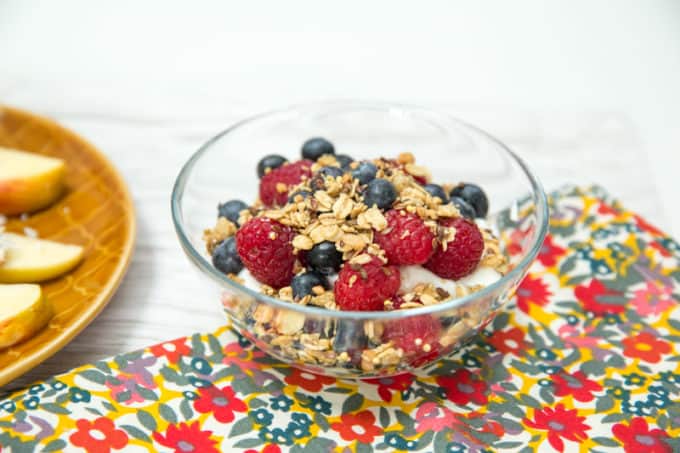
Folate-rich foods for pregnancy:
Examples: broccoli, brussels sprouts, leafy green vegetables, such as cabbage, kale, spring greens and spinach, peas, chickpeas and kidney beans, breakfast cereals fortified with folic acid.
How much do you need? 600 micrograms per day
Folate is the naturally derived form of the vitamin found in foods, whereas folic acid is the form found in supplements. Folic acid is required in the first days and weeks after conception—a time when many women are not aware that they’re pregnant yet—as it is critical to help protect your baby against neural tube defects such as spina bifida. That’s why it’s important to take folic acid when you’re even considering the idea of getting pregnant. Every woman of childbearing age who may become pregnant should take it daily. Most folic acid supplements are 400 micrograms, which is enough if you get the other 200 micrograms from food.
If you’re at a higher risk of delivering a baby with neural tube defects (for example, if you’ve previously delivered a baby with a neural tube defect or you have a family history of neural tube defects), your doctor may recommend that you take additional folic acid prior to and during pregnancy. Some doctors recommend that you take up to 4,000 micrograms per day if you’re at a higher risk. Make sure to speak to your doctor or dietitian if you have questions about this.
Vitamin D-rich foods for pregnancy:
Examples: milk or fortified milk alternatives, some oil fish such as salmon, egg yolks, red meat
How much do you need? 600 -2000 IU per day
During pregnancy, it’s important to get enough vitamin D. There are very few food sources of vitamin D, so it’s recommended to take a daily supplement. This very important vitamin helps your body use the minerals that are a part of bones and teeth, including calcium and phosphorous. It may also help to reduce the risk of chronic diseases such as multiple sclerosis and cancer, and it is linked to a stronger overall immune system.
Vitamin D is made by the body after exposure to the sun. It’s really cool, actually! The sun’s rays hit cholesterol in the skin cells, providing the energy for vitamin D synthesis to occur. This happens quite quickly (in about 10 minutes), particularly in the summer. That means you don’t need to tan or burn your skin to get vitamin D. You only need to expose your skin for only about half the time it takes for your skin to begin to burn. Sunblock and sunscreen block some vitamin D–producing UV rays. So if you live in a cool climate (do you see snow for half of the year like we do?) or are really careful about sunscreen, you may not naturally get enough vitamin D.
FAQ
A meta-analysis of 8 studies showed that date fruit consumption may cut down the “active labor” phase duration (when your cervix dilates more rapidly to 10 cm, and contractions are stronger and closer together) which comes after “early labor”. Eating dates might also help improve your “Bishop Score” which basically tell you how ready your body is for labor. The studies that were looked at were of low to moderate quality, however, so more studies are needed to confirm this benefit of eating dates.
Yes! In fact, they provide a great source of energy and micronutrients (listed above). Eating dates has no effect on the frequency of cesarean section, and is not associated with negative side effects during pregnancy.
There you have it! A comprehensive guide to foods and supplements for a healthy pregnancy. If there’s one thing you should take away from this guide, it’s that there are no pregnancy ‘superfoods’. Eating a variety of whole foods, with an emphasis on foods (and in some cases, supplements) that contain those key nutrients, is the best approach for a healthy pregnancy. And remember…you’re not in this alone. Your doctor or dietitian are here to help guide you through this!
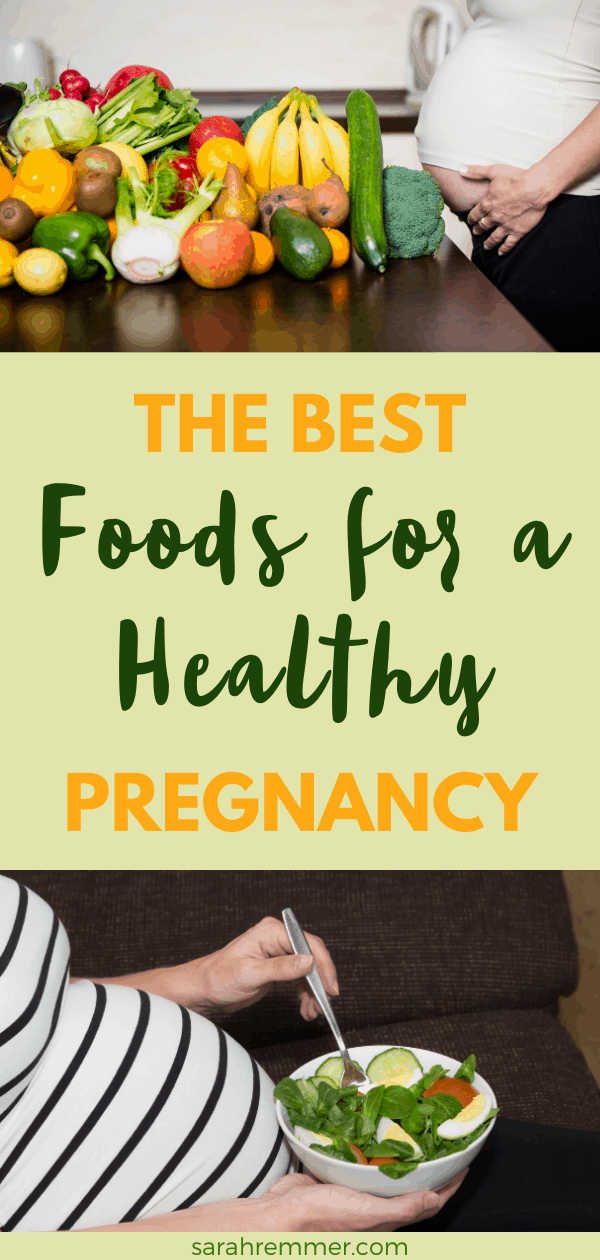

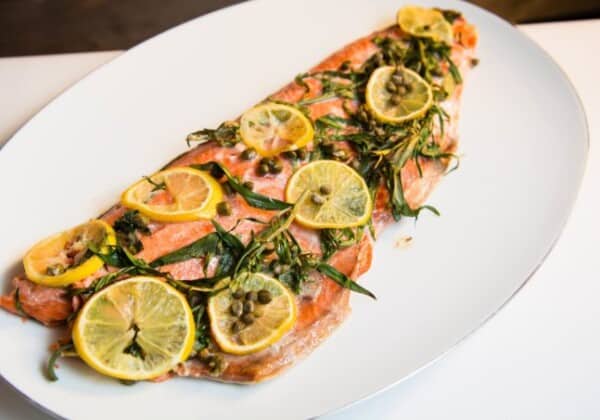
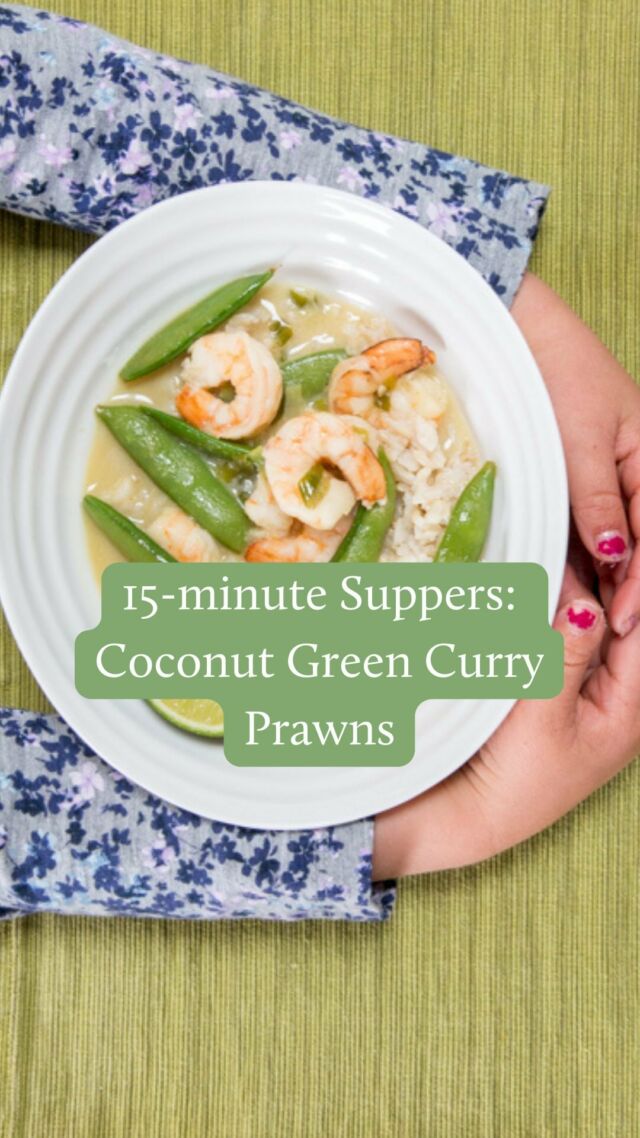

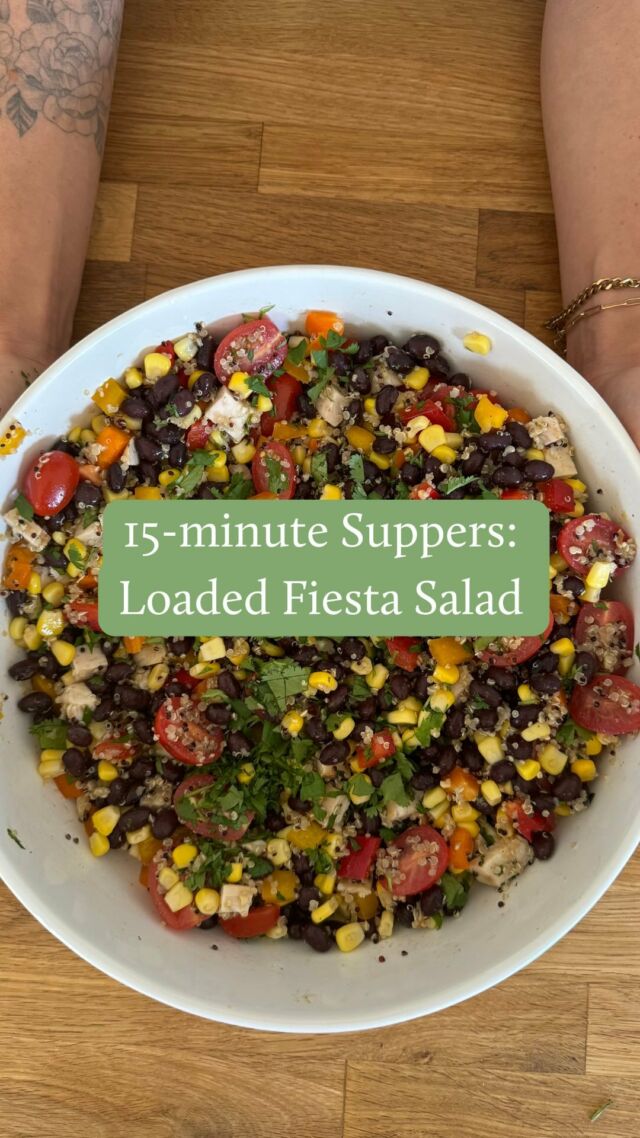


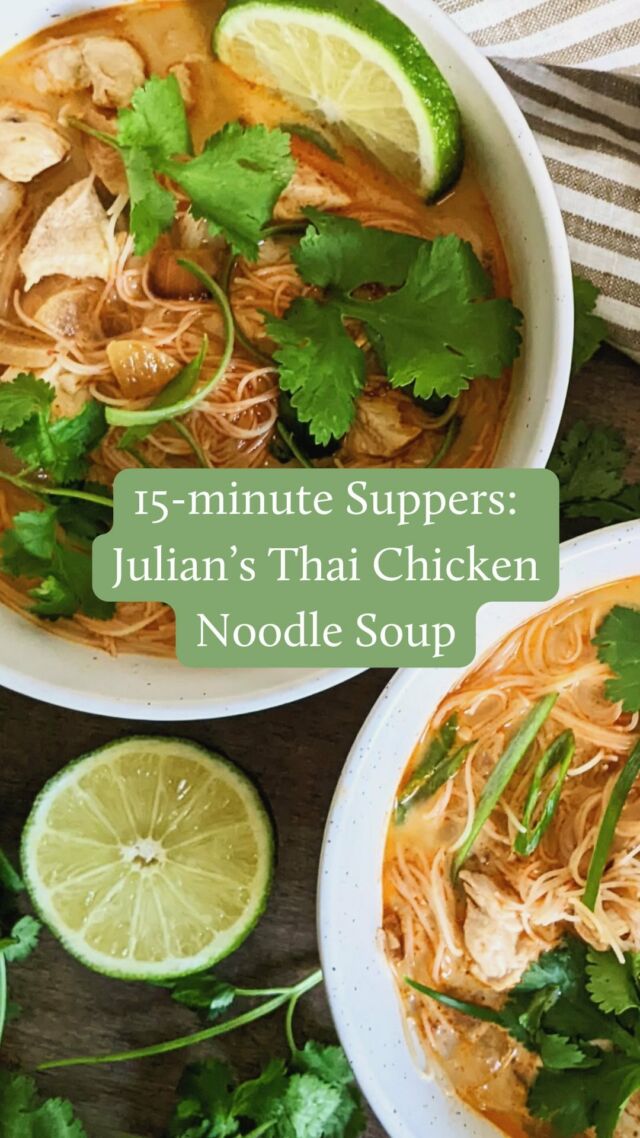
Leave a Comment